Crusader Kings 3’s task certainly isn’t an easy one, as it follows up on an extremely complex game with a history of eight years of expansions.
Crusader Kings 2 has reached such a level of simulative complexity that it’s nearly unparalleled in the industry. It’s also a game played in large part across menus, so no amount of visual improvements can properly replace lost depth.
For that reason, when approaching my first hands-on time with its successor, I was a bit concerned. Would it feel like two steps forward and three steps back? Would we have to wait for several expansions to get back to a level of depth similar to what we have now in CK2?
I’m happy to report that this is not the case. Of course, not all the options that we have in a fully-expanded CK2 are present. I haven’t seen traces of interactions with China or sunset invasions (thankfully, in this case), but many elements that were introduced by the previous game’s DLC are in out of the box. Paradox appears to have found a very good balance between including elements that have become important for players and leaving out things that we can do without at least for a while.
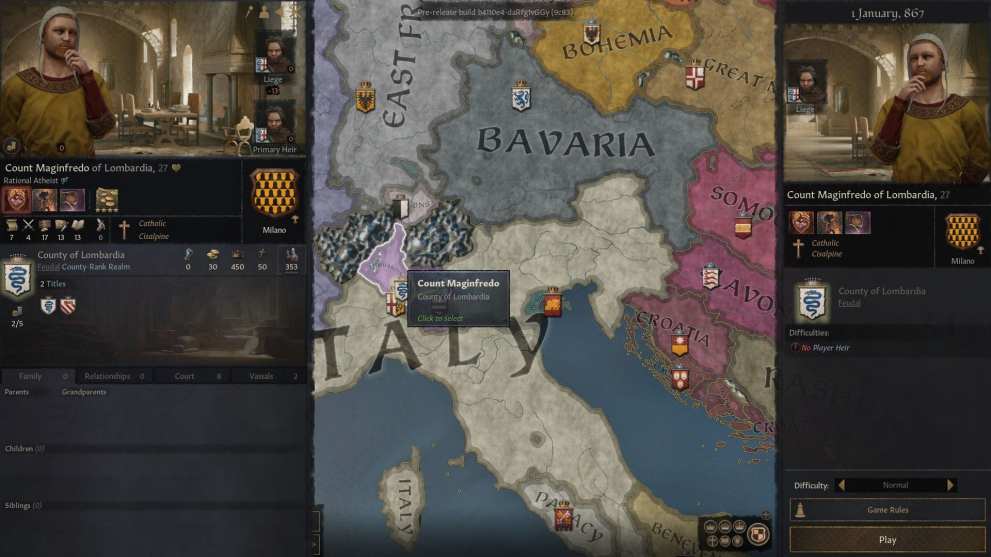
An important innovation coming with CK3 is the attention afforded to onboarding new players. Tutorials are much better and tooltips do a great job in explaining all the concepts we need to know to be the perfect (or imperfect, since that’s half of the fun) medieval ruler.
This is not to say that the game has become easier. Crusader Kings 3 feels like the perfect example of making things more accessible without dumbing them down.
As a matter of fact, I believe that the game challenged me a lot more. In the previous game, I always felt that it was very easy to bend the world around me to my will. In countless cases, I was able to get away with things I simply shouldn’t have been able to in a realistic simulation, and everyone seemed to be fairly amenable to doing my bidding.
On the other hand, Crusader Kings 3 seems to feature a harsher world. Forget marrying your inbred son of a lowly count to the genius princess of a giant empire. You have to hustle to get other rulers to play ball.
Unfortunately, Paradox granted me with only a few days to enjoy the current build of the game (which incidentally felt surprisingly stable and polished), so conquering the world was out of the question for this period of time.
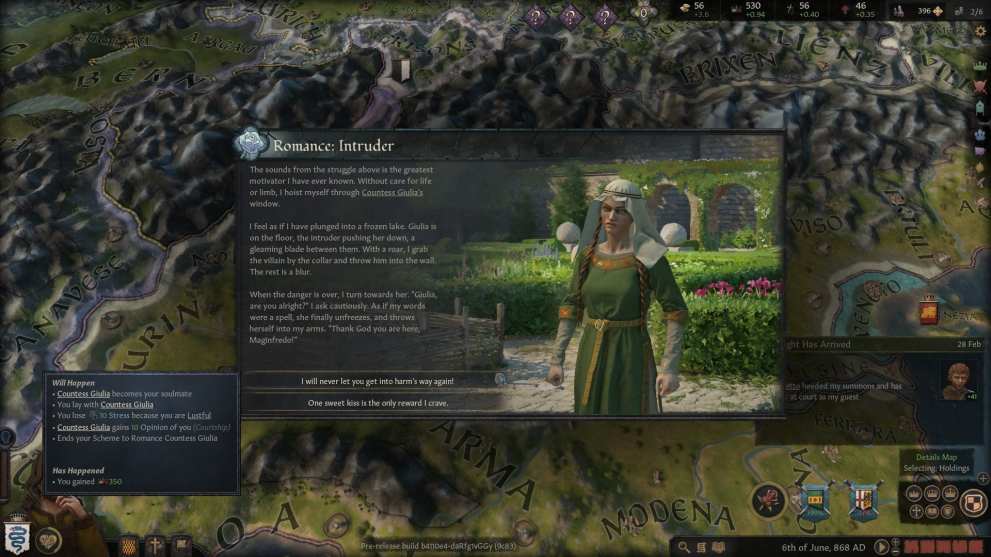
Being able to play literally everyone on the map from counts all the way up to emperors (excluding the Pope and rulers of merchant republics), I was spoiled for choice so I decided to keep things close to home.
I started my journey as Count Magnifredo of Lombardia, a vassal of the Duke of Lombardy, who was himself subject to the King of Italy. The road to higher power surely seemed long and arduous.
Yet, Magnifredo was a rather talented and quirky individual. His “Midas Touched” education made him a very good administrator. The “Diligent” trait made him a bit better at pretty much everything. Being “Cynical,” he was interested in learning new things and able to see through plots (even if the Church didn’t like him very much). As a “Lustful” character, he was also happy to sleep around just as much as he needed to get what he couldn’t with traditional persuasion.
This is the essence of Crusader Kings, which is amplified even further in this third chapter. It may look like a grand strategy game, but its true essence is that of a very deep RPG.
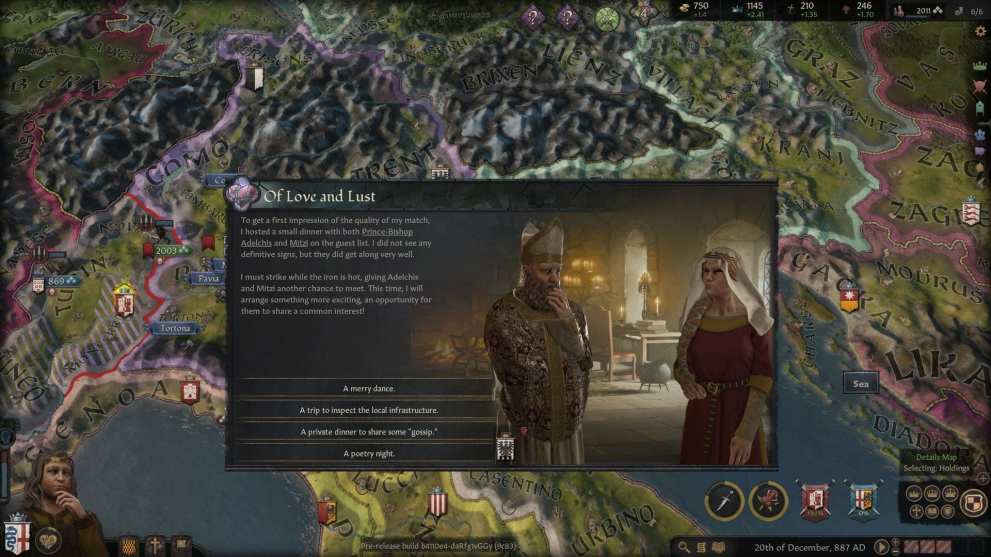
The enhanced lifestyle simulation carries this aspect even further, providing your rulers with a clear progression in their abilities while CK2 tends to rely way too much on randomness. It also affords the player with the freedom to shape up their alter-egos in many different ways.
Magnifredo is a good example: his stewardship-focused education may have suggested pursuing one of the three lifestyles related to administration, but I opted to focus on seduction instead. A strong dynasty requires offsprings, and our hero had to perform a lot of his “work” horizontally.
23 years later, he had managed to fight, murder, deceive, and seduce his way into independence from his masters, while earning the three duke titles that allowed him to declare himself King of Lombardy, ruling unchallenged over a large part of a divided northern Italy.
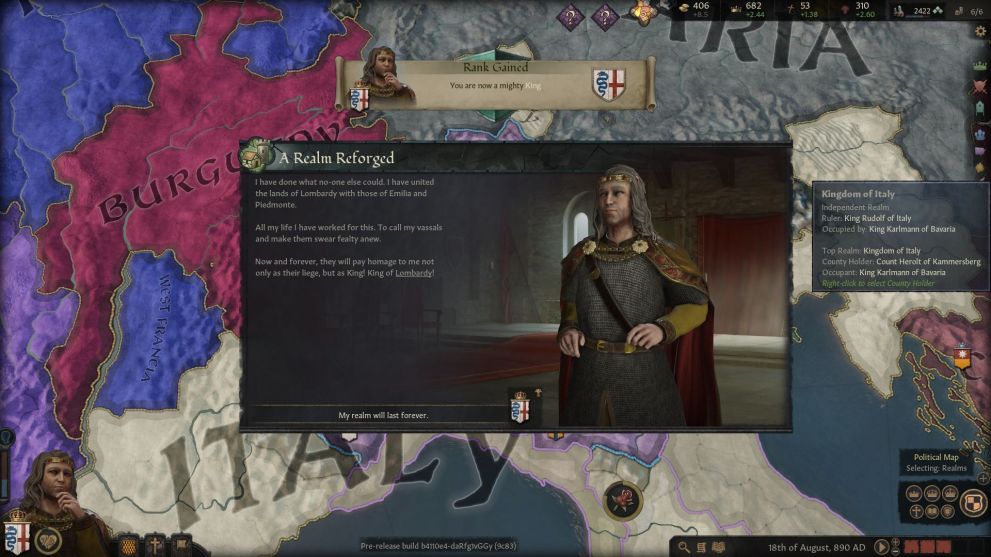
At that point, the sky was the limit. I could have aimed to unify Italy at the expense of the weakened dukes and kings squabbling over the peninsula, or set my sights north, taking advantage of a divided France wrecked by infighting between West Francia, Brittany, Aquitaine, and Burgundy.
Unfortunately, the end of my time with the game cut these plans short, but I can’t wait to pursue them at release.
Speaking of conquering, the map is now both bigger and more complex. Several realms have been added to the east in Asia and to the south in Africa. We can play non-Christian rulers out of the box, so there is an enormous variety of cultures and situations we can play and interact with. The ability to see baronies on the map instead of having them limited to menus also makes things more intuitive and interesting.
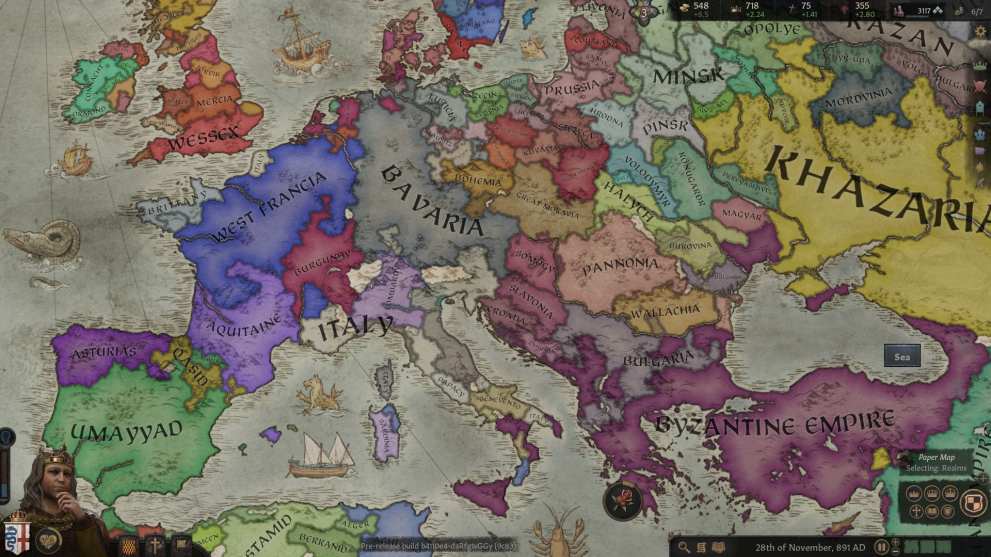
On top of that, the new way characters are portrayed and rendered makes the whole simulation feel a lot more lively and interesting thanks to how well they express their moods and personalities. My time with the game felt a lot like playing cutthroat medieval sims, and it was awesome.
I’ve since tried to satisfy my leftover thirst for rulership in Crusader Kings 2, but the bittersweet realization is that Crusader Kings 3 spoiled me, and it’s going to be difficult to go back to the Emperor of Outremer I was playing in the previous game.
Of course, this is a testimony of Crusader Kings 3‘s promise. Luckily, I won’t have to wait too long before I lead Magnifredo and his progeny to the conquest of Europe and beyond when the game releases for PC on September 1, 2020.
If you’d like to learn more, you can check out our interview with product manager Max Weltz.

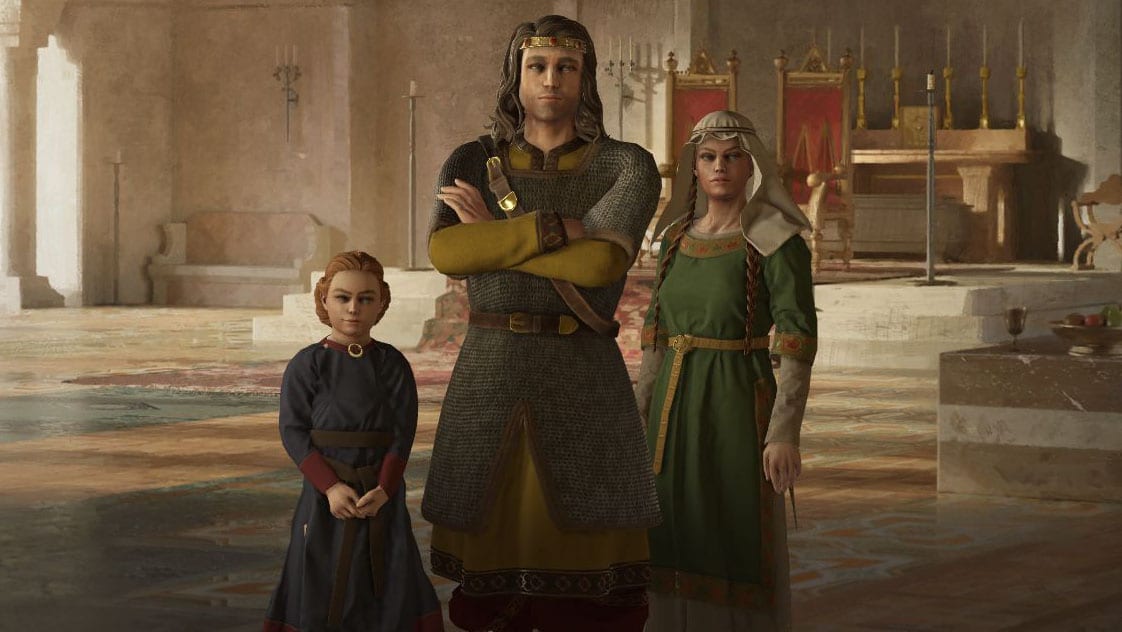











Updated: May 14, 2020 12:04 pm